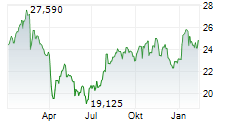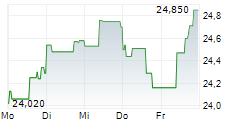
June 18, 2024
- Healthcare leaders indicate automation is crucial in addressing staff shortages, but staff remain skeptical
- Interest in Generative AI grows, with majority of health leaders investing in, or planning to invest in AI technologies to help reduce delays in patient care
Amsterdam, the Netherlands-Royal Philipsreport: Better care for more people. Launched at HLTH Europe, the ninth annual FHI global report shows that healthcare leaders are turning to virtual care and AI-enabled innovation to address pressure due to workforce shortages, financial burdens, and growing demand.
"Increasingly, we're seeing long wait times and staff shortages making it difficult for people to get timely access to care when and where needed. The Future Health Index 2024 global findings show health leaders believe these barriers to access to quality care are getting larger," said Shez Partovi, Chief Innovation & Strategy Officer at Philips. "This year's report shows how innovations including AI are helping to free up time for staff and reduce wait times for patients. However, as health systems roll out AI tools to save time and reduce barriers to care, it's critical to bring staff along on the journey to ensure an inclusive AI rollout with patient and clinician experience is at the forefront."
Staff shortages are taking a heavy toll on healthcare professionals and patients
Almost two-thirds (66%) of healthcare leaders report increased incidence of burnout, stress, and mental health issues in their workforce, deterioration of work-life balance, and/or reduced morale and engagement. Delays in care due to staff shortages are an issue for more than three in four healthcare leaders (77%) - causing concerns about increased waiting lists for appointments (60%), longer waiting times for treatments or procedures (57%), or delayed or limited access to screening, diagnosis, and preventive care (54%).
"The results of the FHI Report and the 3 critical gaps identified align perfectly with the challenges I face in my clinical practice each day. The staffing gap is the most concerning aspect as it has a direct negative impact on patient care. As health leaders, we need to focus on increasing the adoption of digital technologies to improve efficiency and reduce the workload, but not without engaging with healthcare staff to ensure adoption of these technologies is embraced," said Prof. Dr. Chiara Bucciarelli-Ducci, cardiologist and CEO of the Society for Cardiovascular Magnetic Resonance), London, UK.
Automation can help ease the burden on staff
Most healthcare leaders (92%) agree that using technology to automate repetitive tasks or processes is critical for addressing staff shortages in healthcare. However, nearly two-thirds (65%) say healthcare professionals are skeptical about its use. Concerns were raised around automation and quality assurance and the potential for overreliance on automation leading to staff losing essential skills and knowledge. Today, automation mainly reduces the administrative burden; however, two in five (41%) healthcare leaders plan to implement it for workflow prioritization.
Virtual care may also help bridge the staffing gap, with 89% of leaders already seeing a positive impact of virtual care in easing shortages. Leaders also see benefits for staff satisfaction with more than half (54%) saying virtual care enables more flexible work schedules and creates new career options for healthcare professionals.
Patients also benefit from remote monitoring which can offer more positive experiences while reducing the strain on overstretched hospital staff. Leaders see a bigger role for remote patient monitoring in the future and are planning an expansion into areas such as telestroke care (40%), maternal and fetal health (36%), and postoperative monitoring (35%) within the next three years.
Health leaders keenly interested in Generative AI
Last year's report showed leaders were planning investments in AI; however, the FHI 2024 results show AI for clinical decision support is already being leveraged for in-hospital patient monitoring (43%), with more investments planned in the next three years. Additionally, the majority of leaders (85%) are currently investing in, or planning to invest in, generative AI technologies.
Financial challenges must be addressed through sustainable strategies
The vast majority (81%) of leaders note that financial challenges are having a direct impact on patients. Almost 3 in 5 (59%) are unable to invest in new or more advanced medical equipment or technologies. At the same time, 89% are planning growth strategies to serve more patients or expand services. Additionally, 86% of healthcare leaders also believe that reducing CO2 emissions and the environmental impact of healthcare should be a top priority for healthcare organizations, meaning that any strategies to address financial challenges must be sustainable.
The FHI 2024 report is based on proprietary research among 3,000 healthcare leaders conducted in 14 countries. To access this year's report, visit Future Health Index 2024.
For further information, please contact:
Kathy O'Reilly
Philips Global External Relations
Tel.: +1 978-221-8919
E-mail: Kathy.OReilly@philips.com
About Royal Philips
Royal Philips (NYSE: PHG, AEX: PHIA) is a leading health technology company focused on improving people's health and well-being through meaningful innovation. Philips' patient- and people-centric innovation leverages advanced technology and deep clinical and consumer insights to deliver personal health solutions for consumers and professional health solutions for healthcare providers and their patients in the hospital and the home.
Headquartered in the Netherlands, the company is a leader in diagnostic imaging, ultrasound, image-guided therapy, monitoring and enterprise informatics, as well as in personal health. Philips generated 2023 sales of EUR 18.2 billion and employs approximately 69,100 employees with sales and services in more than 100 countries. News about Philips can be found at www.philips.com/newscenter.
Attachments
- A clinician in consultation with a patient (https://ml-eu.globenewswire.com/Resource/Download/15ce3f19-ddde-469b-bee0-c1fd9383513b)
- A clinician in discussion with a young patient (https://ml-eu.globenewswire.com/Resource/Download/739d4567-e95d-44d8-af6f-71e7ee595cbd)
- Future Health Index 2024 report infographic (https://ml-eu.globenewswire.com/Resource/Download/1776422d-f685-456c-9775-e5b7e8fb4645)
- The Future Health Index 2024 report: Better care for more people (https://ml-eu.globenewswire.com/Resource/Download/ddf230f7-edf1-45f3-9dfa-809d6b3f33b8)
- A pregnant woman with a young child (https://ml-eu.globenewswire.com/Resource/Download/ca9ec76c-aff4-49c2-b174-64980429f05a)




